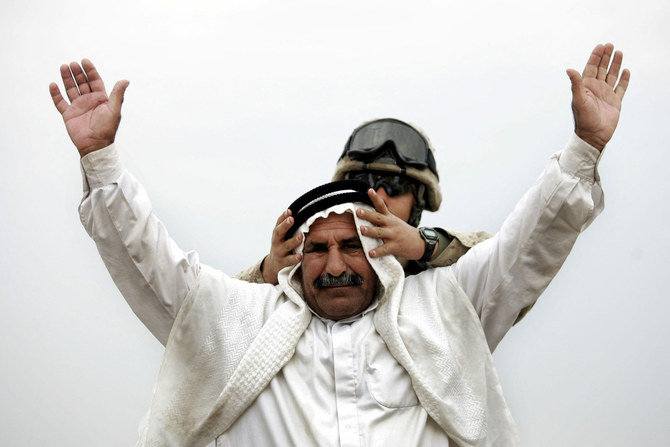Dalia Al-Aqidi
Twenty years have passed since the controversial US-led invasion of Iraq to free its people from their leader’s atrocities. However, Iraqis continued to suffer due to the actions of successive governments, which have, unfortunately, made them miss the horrible days of the dictator Saddam Hussein, who brought Mesopotamia to what it is now. What has happened since 2003? And why did the ruling class fail to build an institutional state that respects the law and defends human rights, as the Iraqi opposition preached for years prior to the fall of the Baath Party regime?
Saddam dragged his country into endless wars. He imposed severe punishments on his people and dealt with his opponents and critics with an iron fist that knew no mercy, causing millions of citizens to flee their homeland in fear of his tyranny. Therefore, it is logical that Iraqis and the international community were divided over regime change and its repercussions, regardless of their political or religious affiliation. A large number of those who suffered from the injustices of Saddam and his Baathist regime supported the American intervention, not out of hatred for Iraq but because they genuinely believed that, in a police state, a regime change process from within was nearly impossible. Even those not personally affected by the arbitrary nature of the regime dreamed of helping their fellow citizens live a decent and free life. As for those who opposed the intervention of the US, they also had their reasons, even if the majority were motivated by personal factors.
So, who were the naysayers? On the top of the list were the Baath Party and Saddam loyalists, who committed crimes against their own people and reported many of their fellow citizens to the security forces for even cracking a joke about the nation’s leader. If the oppressive regime collapsed, they would lose what little power they had and be prosecuted by the new government.
Then came the leftists, who still believed in communism and socialism even though these ideas had failed in their own origins. This group hated everything that came from the West and instead supported the Chinese, Russian and North Korean models, disregarding the loss of dignity and rights of the people in these countries. This makes us question the ideology and goals of the Iraqi Communist Party, which opposed the Baathist regime back in the 1970s and many of whose members fled to communist Eastern Europe. Third were the people who believed Saddam’s stunts and slogans in the name of Arabism. However, they had no objection when the former dictator invaded an Arab and Muslim country, cheering the naming of Kuwait as Iraq’s 19th province. The nationalists literally worshipped Gamal Abdel Nasser’s ideology, which was the core of the Egyptian collapse.
The last group contained the very few Iraqis who were ready to die to change the regime. However, after several failed attempts to assassinate the former dictator, they continued to oppose the Baathist regime in silence. Having said that, the US – while being ill-advised by some of the Iraqi opposition’s key players – made fatal post-invasion mistakes that paved the way for the pro-Iran elements to take over. Independent Iraqi American opposition figures who lived in Washington, including me, warned of the consequences of the last group. Still, the US administration ignored our concerns. The dissolution of the Iraqi Army and the creation of the Supreme National Debaathification Commission were not wise measures in the people’s interest. Rather, they granted absolute power to the opposition parties to decide the fate of the people without restrictions or conditions.
This was the main reason that the Iraqis who celebrated the tyrant’s fall and welcomed the liberating forces with flowers and gratitude ultimately changed their stance and blamed the US for their misery. Iraq today is better than it was under the rule of the Baath Party, even if it is only moving slowly toward democracy and human freedoms. As an American of Iraqi descent, I thank the US for liberating my motherland and pulling it out of its long, dark tunnel. However, I blame the Iraqis who failed to run the country effectively and stole the nation’s wealth before the eyes of the citizens, who continued to reelect them in every parliamentary session. Today, the Iraqis that applauded Saddam for decades are now applauding the corrupt murderers just the same.
America did not tell them to steal from or loot their country instead of building a prosperous and bright future for their children. A strong, democratic and developed Iraq would have become the greatest ally of the US and the West, which would have given them a source of great strength. Only the Iraqis themselves bear responsibility for the miserable situation in their country. So, they should stop throwing blame on others. Unfortunately, this is the ugly truth.







